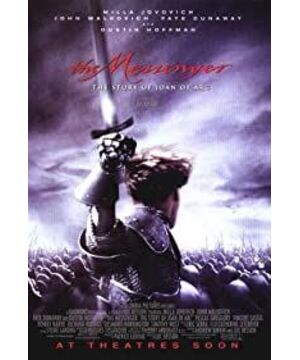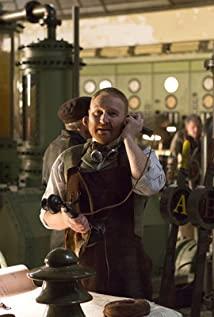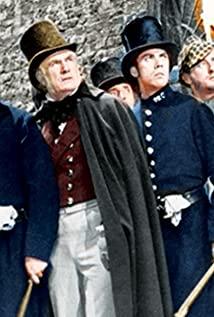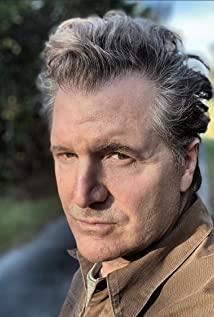The appearance of Joan of Arc is approaching the end of the Hundred Years War between Britain and France. One of the battles she participated in was the rescue of Orleans, and the other was the siege of Paris and was wounded and captured. "A Brief History of the Hundred Years' War" records that she was pinned down overnight, but the French did not intend to rescue her. It seems that her story can be narrated in about three pages in a history of the Hundred Years War between Britain and France, but it often takes one chapter to restore. What is the charm of this witch of Orleans that deserves to be sung through the ages, and finally was named a saint?
Luc Besson's "Joan of Arc" should be in the comedy category. There are many Japanese-style turning jokes on the French generals. War seems to be a carnival for hedonists. Joan of Arc was photographed as a lunatic, an extreme religious fanatic. "She`s nuts." The French marshal said with a smile. Luc Besson should have filmed Joan of Arc with such a playful attitude. Interspersed with a large number of religious scenes, Joan of Arc's almost crazy behavior is shown. For atheist believers - Joan of Arc has a problem with her brain. Even the Red Army movies under the political environment of the past did not have such fanatical believers, and only showed their faith in scenes like the dead still holding the horn. Joan of Arc's fanaticism borders on pedantic. In hero films, such rigid-headed, single-strand characters should be the most ridiculed. Especially in the current entertainment and commercial blockbuster, the protagonist has a weak appearance, but his brain must be good. There is no doubt that Joan of Arc is the anti-routine. The carnival generals did not dispel this seriousness, but were restrained. Makes the whole film laugh constantly, but the tone is very calm. In addition, didn't Luc Besson get admitted to the film school? His mirror movements are surprisingly ingenious. The beheading shot is obviously smooth and soft compared to "Braveheart".
The director is French, and Joan of Arc is French, so I don't believe that the director made Joan of Arc a "madman" just to make fun of him. The first two hours of the film are entertainment commercials, but after the battle of Paris, it enters a serious discussion that fits the character's temperament - personal beliefs. Joan of Arc begins a dialogue with God. This conversation stripped Joan of the sanctity of everything, and the interlocutor told her that it was just an accident, that "you saw what you wanted to see." Faith in God was shaken. Afterwards, Joan of Arc, who suffered trials and tribulations, admitted that her belief in God was not noble and stemmed from her own hatred and despair. When you understand yourself, you also understand your beliefs. She chose to give up the flesh and looked at the cross in the burning.
The last thirty minutes of the entire film is devoted to the question of how faith came. It makes an entertainment blockbuster with layers and connotations. like very much.
View more about The Messenger: The Story of Joan of Arc reviews











